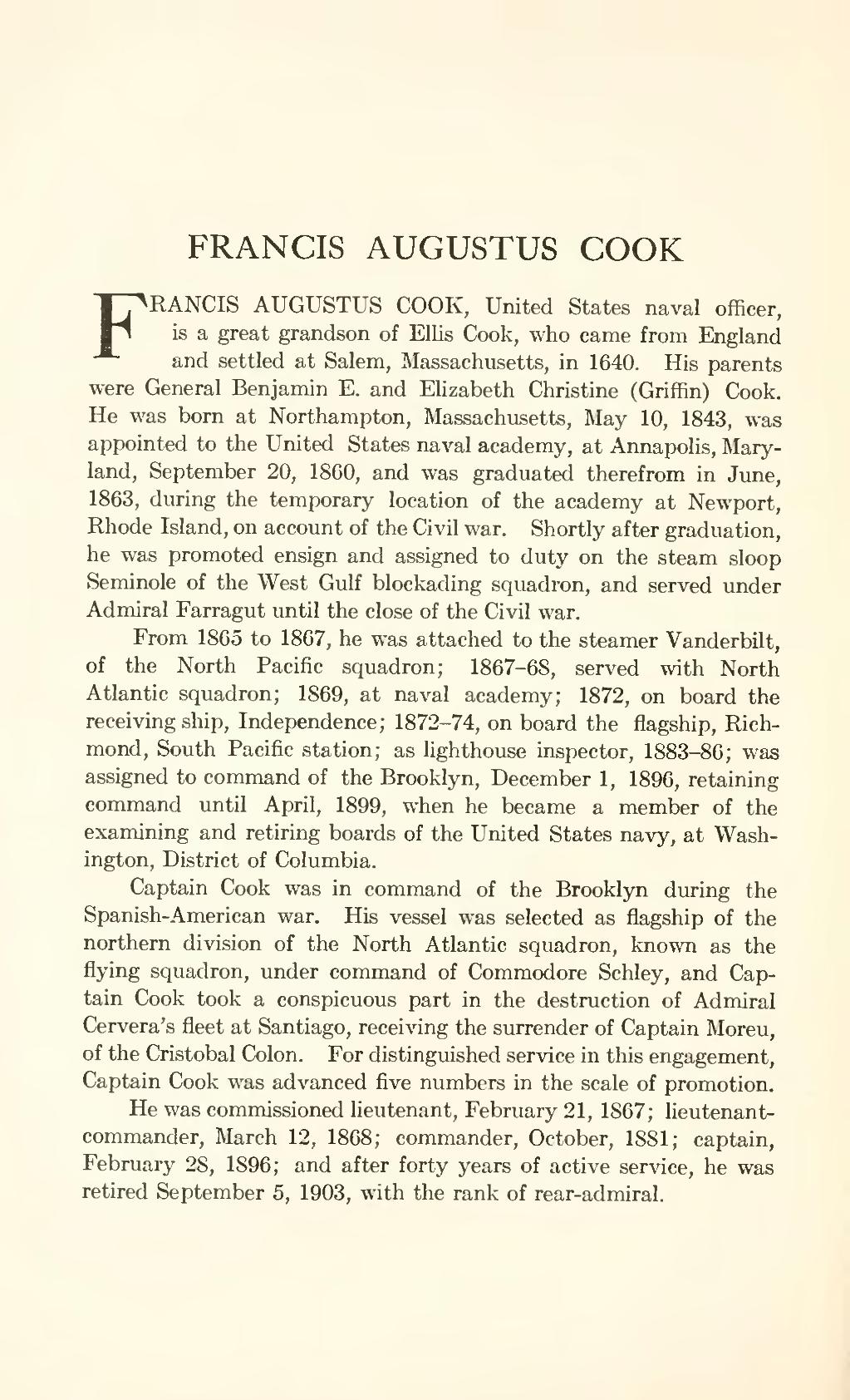FRANCIS AUGUSTUS COOK
FRANCIS AUGUSTUS COOK, United States naval officer, is a great grandson of Ellis Cook, who came from England and settled at Salem, Massachusetts, in 1640. His parents were General Benjamin E. and Elizabeth Christine (Griffin) Cook. He was born at Northampton, Massachusetts, May 10, 1843, was appointed to the United States naval academy, at Annapolis, Maryland, September 20, 1860, and was graduated therefrom in June, 1863, during the temporary location of the academy at Newport, Rhode Island, on account of the Civil war. Shortly after graduation, he was promoted ensign and assigned to duty on the steam sloop Seminole of the West Gulf blockading squadron, and served under Admiral Farragut until the close of the Civil war.
From 1865 to 1867, he was attached to the steamer Vanderbilt, of the North Pacific squadron; 1867-68, served with North Atlantic squadron; 1869, at naval academy; 1872, on board the receiving ship. Independence; 1872-74, on board the flagship, Richmond, South Pacific station; as lighthouse inspector, 1883-86; was assigned to command of the Brooklyn, December 1, 1896, retaining command until April, 1899, when he became a member of the examining and retiring boards of the United States navy, at Washington, District of Columbia.
Captain Cook was in command of the Brooklyn during the Spanish-American war. His vessel was selected as flagship of the northern division of the North Atlantic squadron, known as the flying squadron, under command of Commodore Schley, and Captain Cook took a conspicuous part in the destruction of Admiral Cervera's fleet at Santiago, receiving the surrender of Captain Moreu, of the Cristobal Colon. For distinguished service in this engagement, Captain Cook was advanced five numbers in the scale of promotion.
He was commissioned lieutenant, February 21, 1867; lieutenant-commander, March 12, 1868; commander, October, 1881; captain, February 28, 1896; and after forty years of active service, he was retired September 5, 1903, with the rank of rear-admiral.

